Sale
Deuteronomy and Environmental Amnesia
Published: Sep 2014
Original price was: £45.00.£18.50Current price is: £18.50.
Modern Westerners suffer from environmental amnesia, our failure to remember properly our intimate connections to the places in our lives and to the other inhabitants of these places, both human and non-human. Although environmental amnesia may be the underlying diagnosis of our contemporary ecological problems, in Deuteronomy and Environmental Amnesia Raymond Person argues that environmental amnesia has roots in ancient Mesopotamia, the cradle of civilization, and that ancient forms of environmental amnesia are evident in the book of Deuteronomy.
Raymond Person combines the ecological hermeneutics of the Earth Bible project for the first time with an emerging approach in environmental philosophy —that is, environmental hermeneutics which draws significantly from the works of Heidegger, Gadamer, Habermas and Ricoeur. As he explores the presence of ancient forms of environmental amnesia in Deuteronomy, he draws extensively from other approaches to the ancient Near East and the Bible that emphasize the interactions between material culture and text and that take seriously the Other as portrayed in the Bible, especially household archaeology, zooarchaeology, feminist approaches, and postcolonial approaches. His analysis discovers not only forms of environmental amnesia that the Deuteronomic school suffered from and promoted ideologically, but also partial remedies for forms of ancient environmental amnesia in some of the Deuteronomic legislation. His reflection on environmental amnesia and its partial remedies in the text of Deuteronomy provides insights into our modern forms of environmental amnesia and how we may begin to lessen its effects on the Earth community.
Between the introduction and conclusion, the volume contains two parts. The first part consists of chapters on how environmental amnesia exists in various themes in Deuteronomy: the family household, land versus wilderness, Israel versus the nations, clean versus unclean animals, and urban versus rural. The second part is somewhat more like a traditional commentary, focusing on themes in selected passages, including herem in Deut. 7.1-26, the sabbath year in Deut. 15.1-18, war in Deut. 20.1-20, first-fruits and the third-year tithe in Deut. 26.1-19, and eschatology in Deut. 28.1-68 and 30.1-20.
Sale
Deuteronomy and Environmental Amnesia
Original price was: £45.00.£18.50Current price is: £18.50.
Modern Westerners suffer from environmental amnesia, our failure to remember properly our intimate connections to the places in our lives and to the other inhabitants of these places, both human and non-human. Although environmental amnesia may be the underlying diagnosis of our contemporary ecological problems, in Deuteronomy and Environmental Amnesia Raymond Person argues that environmental amnesia has roots in ancient Mesopotamia, the cradle of civilization, and that ancient forms of environmental amnesia are evident in the book of Deuteronomy.
Raymond Person combines the ecological hermeneutics of the Earth Bible project for the first time with an emerging approach in environmental philosophy —that is, environmental hermeneutics which draws significantly from the works of Heidegger, Gadamer, Habermas and Ricoeur. As he explores the presence of ancient forms of environmental amnesia in Deuteronomy, he draws extensively from other approaches to the ancient Near East and the Bible that emphasize the interactions between material culture and text and that take seriously the Other as portrayed in the Bible, especially household archaeology, zooarchaeology, feminist approaches, and postcolonial approaches. His analysis discovers not only forms of environmental amnesia that the Deuteronomic school suffered from and promoted ideologically, but also partial remedies for forms of ancient environmental amnesia in some of the Deuteronomic legislation. His reflection on environmental amnesia and its partial remedies in the text of Deuteronomy provides insights into our modern forms of environmental amnesia and how we may begin to lessen its effects on the Earth community.
Between the introduction and conclusion, the volume contains two parts. The first part consists of chapters on how environmental amnesia exists in various themes in Deuteronomy: the family household, land versus wilderness, Israel versus the nations, clean versus unclean animals, and urban versus rural. The second part is somewhat more like a traditional commentary, focusing on themes in selected passages, including herem in Deut. 7.1-26, the sabbath year in Deut. 15.1-18, war in Deut. 20.1-20, first-fruits and the third-year tithe in Deut. 26.1-19, and eschatology in Deut. 28.1-68 and 30.1-20.
Sale
Recent Research on Revelation
Published: Sep 2014
Original price was: £60.00.£20.00Current price is: £20.00.
Perhaps no other biblical book has been the source of as much consternation to its readers as the Revelation of John of Patmos. Their distress has been accentuated by popular approaches, which often advance sensationalist visions of the future. But did John's vision focus on the distant future, or was it directed to concerns of his own day? If it was directed to his own situation in Roman Asia Minor, what lasting significance, if any, does it have for people two thousand years after the composition of the work?
Recent Research on Revelation is an ambitious attempt to comprehend the great range of scholarly views on the Apocalypse. Avoiding popular and sensational readings of Revelation, this book outlines how scholars of various stripes grapple with John's dramatic and often disturbing book. Beginning with a historical survey of scholarly opinion, the book examines the question of what form of literature Revelation is. It then offers an overview of various methods used to interpret the Apocalypse, ranging from traditional historical-critical analysis to feminist and postcolonial criticisms.
The Apocalypse continues to evoke strong reactions in its readers, both positive and negative, from comfort to perplexity to revulsion. At the very least, it stimulates readers' interest to an extent not surpassed by any other New Testament book. We cannot shut our eyes to John's vision, for it has had too much impact on who we are, whether Christian or not.
Sale
Recent Research on Revelation
Original price was: £60.00.£20.00Current price is: £20.00.
Perhaps no other biblical book has been the source of as much consternation to its readers as the Revelation of John of Patmos. Their distress has been accentuated by popular approaches, which often advance sensationalist visions of the future. But did John's vision focus on the distant future, or was it directed to concerns of his own day? If it was directed to his own situation in Roman Asia Minor, what lasting significance, if any, does it have for people two thousand years after the composition of the work?
Recent Research on Revelation is an ambitious attempt to comprehend the great range of scholarly views on the Apocalypse. Avoiding popular and sensational readings of Revelation, this book outlines how scholars of various stripes grapple with John's dramatic and often disturbing book. Beginning with a historical survey of scholarly opinion, the book examines the question of what form of literature Revelation is. It then offers an overview of various methods used to interpret the Apocalypse, ranging from traditional historical-critical analysis to feminist and postcolonial criticisms.
The Apocalypse continues to evoke strong reactions in its readers, both positive and negative, from comfort to perplexity to revulsion. At the very least, it stimulates readers' interest to an extent not surpassed by any other New Testament book. We cannot shut our eyes to John's vision, for it has had too much impact on who we are, whether Christian or not.
Sale
Recent Research on the Historical Jesus
Published: Sep 2014
Original price was: £60.00.£20.00Current price is: £20.00.
Over the past two hundred years, several have ventured to write a history of Jesus, but few have discussed their method of writing about the past with any depth. Unspoken assumptions or bias often dictate what the historian will find. The fact that there are so many conflicting pictures of Jesus compounds the problem. In the last thirty years of Jesus research, which have been identified as the Third Quest for the historical Jesus, historians have agreed that Jesus makes the most sense within a Jewish context, a setting that allows historians to write about Jesus from various historical approaches.
Simpson addresses the issue of method in historical Jesus research by looking at two prominent historians within the Third Quest —John Meier and James Dunn. Both Meier and Dunn typify distinct approaches to the historical Jesus, and both claim to be a part of the Third Quest. Simpson analyses their philosophy of history and historical method. In the second part of the book, Simpson looks at how Meier and Dunn handle certain key events in the life of Jesus. The treatment of these events serves as a way of highlighting the drawbacks and advantages of each method.
These distinct approaches point to the tensions that make up the Third Quest and illustrate how the concerns of recent research, evolving over a short period of time, have brought old questions to the surface in new ways. By describing the current situation of historical Jesus research as evidenced by Meier and Dunn, Simpson maps out some promising lines of future research.
Sale
Recent Research on the Historical Jesus
Original price was: £60.00.£20.00Current price is: £20.00.
Over the past two hundred years, several have ventured to write a history of Jesus, but few have discussed their method of writing about the past with any depth. Unspoken assumptions or bias often dictate what the historian will find. The fact that there are so many conflicting pictures of Jesus compounds the problem. In the last thirty years of Jesus research, which have been identified as the Third Quest for the historical Jesus, historians have agreed that Jesus makes the most sense within a Jewish context, a setting that allows historians to write about Jesus from various historical approaches.
Simpson addresses the issue of method in historical Jesus research by looking at two prominent historians within the Third Quest —John Meier and James Dunn. Both Meier and Dunn typify distinct approaches to the historical Jesus, and both claim to be a part of the Third Quest. Simpson analyses their philosophy of history and historical method. In the second part of the book, Simpson looks at how Meier and Dunn handle certain key events in the life of Jesus. The treatment of these events serves as a way of highlighting the drawbacks and advantages of each method.
These distinct approaches point to the tensions that make up the Third Quest and illustrate how the concerns of recent research, evolving over a short period of time, have brought old questions to the surface in new ways. By describing the current situation of historical Jesus research as evidenced by Meier and Dunn, Simpson maps out some promising lines of future research.
Sale
Discourse, Dialogue, and Debate in the Bible: Essays in Honour of Frank H. Polak
Published: Aug 2014
Original price was: £70.00.£25.00Current price is: £25.00.
Frank H. Polak's contributions to Biblical Studies cover many fields, from Septuagint and Qumran studies to many other disciplines. His most important contributions in recent decades, however, have been to the narrative criticism and discourse analysis of the Bible, including their application to issues of date and authorship, which have been debated since ancient times.
Polak's work is informed by many branches of general and Semitic linguistics, social anthropology and historiography, along with a broad, humanistic approach. In his work, he has attempted to balance literary, linguistic and historical criticism in order to achieve a synthesis of these separate but overlapping fields, all of them necessary for reading the Hebrew Bible in a responsible manner.
This volume is offered to Frank by friends and colleagues from Tel Aviv University, where he has taught for almost 40 years, and from other academic institutions, in honour of his illustrious career and on the occasion of his retirement from teaching. The contributors all debate questions of discourse, dialogue, language and history —questions that have been central to Frank's researches over the years.
This is the seventh volume of the Amsterdam Studies in the Bible and Religion (ed. Athalya Brenner-Idan), a sub-series of the Bible in the Modern World and Hebrew Bible Monographs.
Sale
Discourse, Dialogue, and Debate in the Bible: Essays in Honour of Frank H. Polak
Original price was: £70.00.£25.00Current price is: £25.00.
Frank H. Polak's contributions to Biblical Studies cover many fields, from Septuagint and Qumran studies to many other disciplines. His most important contributions in recent decades, however, have been to the narrative criticism and discourse analysis of the Bible, including their application to issues of date and authorship, which have been debated since ancient times.
Polak's work is informed by many branches of general and Semitic linguistics, social anthropology and historiography, along with a broad, humanistic approach. In his work, he has attempted to balance literary, linguistic and historical criticism in order to achieve a synthesis of these separate but overlapping fields, all of them necessary for reading the Hebrew Bible in a responsible manner.
This volume is offered to Frank by friends and colleagues from Tel Aviv University, where he has taught for almost 40 years, and from other academic institutions, in honour of his illustrious career and on the occasion of his retirement from teaching. The contributors all debate questions of discourse, dialogue, language and history —questions that have been central to Frank's researches over the years.
This is the seventh volume of the Amsterdam Studies in the Bible and Religion (ed. Athalya Brenner-Idan), a sub-series of the Bible in the Modern World and Hebrew Bible Monographs.
Sale
Moses: The Man and the Myth in Music
Published: July 2014
Original price was: £50.00.£18.50Current price is: £18.50.
With this book, Leneman completes a trilogy on musical interpretations of biblical narratives. Her previous books were Love, Lust, and Lunacy: The Stories of Saul and David in Music (2010) and The Performed Bible: The Story of Ruth in Opera and Oratorio (2007).
Moses has often been thought of more as a myth than as a man. Later retellings of his story —particularly in operas and oratorios —demythologize him, portraying him and all the characters surrounding him on a more human scale. Moses the statue comes down from his pedestal and becomes a living man. For example, in the Bible the primary relationship of Moses is with God; secondarily it is with the people of Israel, rather than with individuals. In opera and the many oratorio settings the figure of Moses is enhanced by his representation as a man with many emotional ties —to Zipporah, Miriam or Aaron, or to all three.
Re-reading and re-telling biblical narratives through musical settings gives voice to often silent biblical characters, offering the reader and listener unexpected ways to hear and understand their story. In Moses: The Man and the Myth in Music, highlighting how Moses was richly imagined in oratorios and operas, Leneman discusses 16 operas and oratorios from the eighteenth to the twentieth century —including works by Handel, Rossini, Saint-Saëns, Massenet, Schoenberg and more obscure composers whose music has seldom or never been explored.
Through music, the listener can hear and also feel the suffering of the Israelites; the passion of Moses as leader, liberator, and even lover; the intensity of Miriam's vision and commitment; and the whole range of emotion experienced by every character that inhabits this story. The music and librettos not only fill in the spaces between the lines, but go beyond the margins of the biblical text to conjure up a multi-dimensional world.
Sale
Moses: The Man and the Myth in Music
Original price was: £50.00.£18.50Current price is: £18.50.
With this book, Leneman completes a trilogy on musical interpretations of biblical narratives. Her previous books were Love, Lust, and Lunacy: The Stories of Saul and David in Music (2010) and The Performed Bible: The Story of Ruth in Opera and Oratorio (2007).
Moses has often been thought of more as a myth than as a man. Later retellings of his story —particularly in operas and oratorios —demythologize him, portraying him and all the characters surrounding him on a more human scale. Moses the statue comes down from his pedestal and becomes a living man. For example, in the Bible the primary relationship of Moses is with God; secondarily it is with the people of Israel, rather than with individuals. In opera and the many oratorio settings the figure of Moses is enhanced by his representation as a man with many emotional ties —to Zipporah, Miriam or Aaron, or to all three.
Re-reading and re-telling biblical narratives through musical settings gives voice to often silent biblical characters, offering the reader and listener unexpected ways to hear and understand their story. In Moses: The Man and the Myth in Music, highlighting how Moses was richly imagined in oratorios and operas, Leneman discusses 16 operas and oratorios from the eighteenth to the twentieth century —including works by Handel, Rossini, Saint-Saëns, Massenet, Schoenberg and more obscure composers whose music has seldom or never been explored.
Through music, the listener can hear and also feel the suffering of the Israelites; the passion of Moses as leader, liberator, and even lover; the intensity of Miriam's vision and commitment; and the whole range of emotion experienced by every character that inhabits this story. The music and librettos not only fill in the spaces between the lines, but go beyond the margins of the biblical text to conjure up a multi-dimensional world.
Sale
On the Historicity of Jesus: Why We Might Have Reason for Doubt
Published: Jun 2014
Price range: £22.50 through £28.00
The assumption that Jesus existed as a historical person has occasionally been questioned in the course of the last hundred years or so, but any doubts that have been raised have usually been put to rest in favor of imagining a blend of the historical, the mythical and the theological in the surviving records of Jesus.
Carrier re-examines the whole question and finds compelling reasons to suspect the more daring assumption is correct. He lays out extensive research on the evidence for Jesus and the origins of Christianity and poses the key questions that must now be answered if the historicity of Jesus is to survive as a dominant paradigm.
Carrier contrasts the most credible reconstruction of a historical Jesus with the most credible theory of Christian origins if a historical Jesus did not exist. Such a theory would posit that the Jesus figure was originally conceived of as a celestial being known only through private revelations and hidden messages in scripture; then stories placing this being in earth history were crafted to communicate the claims of the gospel allegorically; such stories eventually came to be believed or promoted in the struggle for control of the Christian churches that survived the tribulations of the first century.
Carrier finds the latter theory more credible than has been previously imagined. He explains why it offers a better explanation for all the disparate evidence surviving from the first two centuries of the Christian era. He argues that we need a more careful and robust theory of cultural syncretism between Jewish theology and politics of the second-temple period and the most popular features of pagan religion and philosophy of the time. For anyone intent on defending a historical Jesus, this is the book to challenge.
Sale
On the Historicity of Jesus: Why We Might Have Reason for Doubt
Price range: £22.50 through £28.00
The assumption that Jesus existed as a historical person has occasionally been questioned in the course of the last hundred years or so, but any doubts that have been raised have usually been put to rest in favor of imagining a blend of the historical, the mythical and the theological in the surviving records of Jesus.
Carrier re-examines the whole question and finds compelling reasons to suspect the more daring assumption is correct. He lays out extensive research on the evidence for Jesus and the origins of Christianity and poses the key questions that must now be answered if the historicity of Jesus is to survive as a dominant paradigm.
Carrier contrasts the most credible reconstruction of a historical Jesus with the most credible theory of Christian origins if a historical Jesus did not exist. Such a theory would posit that the Jesus figure was originally conceived of as a celestial being known only through private revelations and hidden messages in scripture; then stories placing this being in earth history were crafted to communicate the claims of the gospel allegorically; such stories eventually came to be believed or promoted in the struggle for control of the Christian churches that survived the tribulations of the first century.
Carrier finds the latter theory more credible than has been previously imagined. He explains why it offers a better explanation for all the disparate evidence surviving from the first two centuries of the Christian era. He argues that we need a more careful and robust theory of cultural syncretism between Jewish theology and politics of the second-temple period and the most popular features of pagan religion and philosophy of the time. For anyone intent on defending a historical Jesus, this is the book to challenge.
Sale
The Bible, Justice and Public Theology
Published: May 2014
Original price was: £60.00.£20.00Current price is: £20.00.
Public theology is a developing field of discourse concerned to address matters of pressing public concern in theological perspective for the common good. Themes of ecology, poverty, human rights and especially justice feature prominently in its discourse. Although justice is also a prominent theme in the Bible, there is no single perspective on what constitutes justice in the Bible and no single view on how biblical perspectives on justice should contribute to contemporary discussion regarding the meaning and implementation of justice.
Informed and inspired by Christopher Marshall's landmark work on Compassionate Justice (Cascade Books, 2012) in dialogue with Jesus' parables of the Good Samaritan and the Prodigal Son, this collection of studies addresses various interrelations between the Bible, justice and public theology. Marshall himself proposes that certain parables of Jesus are paradigmatic for public theology, and some contributors respond to different dimensions of his treatment of the parables of the Good Samaritan and the Prodigal Son in terms of restorative justice.
Other contributors, by contrast, examine broader related concerns such as justice in biblical, theological and philosophical perspective, the hermeneutics of engagement for justice, the relation between feminist theology and restorative justice, biblical resources for public theology, and popular culture as both a conversation partner with and a medium for public theology.
Sale
The Bible, Justice and Public Theology
Original price was: £60.00.£20.00Current price is: £20.00.
Public theology is a developing field of discourse concerned to address matters of pressing public concern in theological perspective for the common good. Themes of ecology, poverty, human rights and especially justice feature prominently in its discourse. Although justice is also a prominent theme in the Bible, there is no single perspective on what constitutes justice in the Bible and no single view on how biblical perspectives on justice should contribute to contemporary discussion regarding the meaning and implementation of justice.
Informed and inspired by Christopher Marshall's landmark work on Compassionate Justice (Cascade Books, 2012) in dialogue with Jesus' parables of the Good Samaritan and the Prodigal Son, this collection of studies addresses various interrelations between the Bible, justice and public theology. Marshall himself proposes that certain parables of Jesus are paradigmatic for public theology, and some contributors respond to different dimensions of his treatment of the parables of the Good Samaritan and the Prodigal Son in terms of restorative justice.
Other contributors, by contrast, examine broader related concerns such as justice in biblical, theological and philosophical perspective, the hermeneutics of engagement for justice, the relation between feminist theology and restorative justice, biblical resources for public theology, and popular culture as both a conversation partner with and a medium for public theology.
Sale
Anatomical Idiom and Emotional Expression: A Comparison of the Hebrew Bible and the Septuagint
Published: May 2014
Original price was: £75.00.£20.00Current price is: £20.00.
The Hebrew Bible abounds in imagery linking feelings and emotions with various parts of the body. These vividly painted word pictures capture the imagination, and the reader can identify physically as well as emotionally with what is being expressed. But this colourful imagery, with its forthright and earthy language, is rather less apparent in modern English translations.
Such substitutions are not just common in English translations, but are also found in the first authorized translation of the Hebrew Bible, the Septuagint. Can the changes to body imagery found in English translations be explained as part of a process that began with the Greek text, which often gave a more muted picture than the Hebrew original?
This study explores these questions by making a detailed comparative analysis of anatomical idioms (body imagery) associated with the emotions of distress, fear, anger and gladness in the Hebrew Bible and the Septuagint. Differences are identified through literal translation into English from both Hebrew and Greek and the results are categorized, discussed and analysed, and detailed statistical information is presented. The data offer a rich resource for further research, and the analysis provides fascinating insights into the minds of the Greek translators and findings that are surprisingly complex.
Sale
Anatomical Idiom and Emotional Expression: A Comparison of the Hebrew Bible and the Septuagint
Original price was: £75.00.£20.00Current price is: £20.00.
The Hebrew Bible abounds in imagery linking feelings and emotions with various parts of the body. These vividly painted word pictures capture the imagination, and the reader can identify physically as well as emotionally with what is being expressed. But this colourful imagery, with its forthright and earthy language, is rather less apparent in modern English translations.
Such substitutions are not just common in English translations, but are also found in the first authorized translation of the Hebrew Bible, the Septuagint. Can the changes to body imagery found in English translations be explained as part of a process that began with the Greek text, which often gave a more muted picture than the Hebrew original?
This study explores these questions by making a detailed comparative analysis of anatomical idioms (body imagery) associated with the emotions of distress, fear, anger and gladness in the Hebrew Bible and the Septuagint. Differences are identified through literal translation into English from both Hebrew and Greek and the results are categorized, discussed and analysed, and detailed statistical information is presented. The data offer a rich resource for further research, and the analysis provides fascinating insights into the minds of the Greek translators and findings that are surprisingly complex.
Sale
Troubling Women and Land: Reading Biblical Texts in Aotearoa New Zealand
Published: Apr 2014
Original price was: £60.00.£20.00Current price is: £20.00.
What do women have to do with land? Biblical women such as Rahab, Achsah, and the daughters of Zelophehad have a great deal to do with Israel's land concerns, and their roles are indeed found troubling. And there are also questions to be asked of Miriam's role in the move from Egypt towards the 'promised' land; of Deborah, involved in a battle with a Canaanite commander; and of Huldah, whose troubling role in Josiah's reform is exposed in a queer-critical reading.
Reading such land-focused narratives from the context of Aotearoa New Zealand brings to the surface disturbing connections with that country's own quite particular experience of colonialism. Such findings call for feminist postcolonial scrutiny. Here, in response, the critical scope is widened by reading these texts contrapuntally with others concerning New Zealand's colonial and postcolonial experiences, both past and present.
Troubling Women and Land has a personal edge, with the author's voice frequently intruding, without apology, sometimes even holding imaginary conversations with characters and scholars, complementing the use of more traditional critical approaches. What underlies the book is a conviction that reading biblical texts matters in the politics of today's world.
Sale
Troubling Women and Land: Reading Biblical Texts in Aotearoa New Zealand
Original price was: £60.00.£20.00Current price is: £20.00.
What do women have to do with land? Biblical women such as Rahab, Achsah, and the daughters of Zelophehad have a great deal to do with Israel's land concerns, and their roles are indeed found troubling. And there are also questions to be asked of Miriam's role in the move from Egypt towards the 'promised' land; of Deborah, involved in a battle with a Canaanite commander; and of Huldah, whose troubling role in Josiah's reform is exposed in a queer-critical reading.
Reading such land-focused narratives from the context of Aotearoa New Zealand brings to the surface disturbing connections with that country's own quite particular experience of colonialism. Such findings call for feminist postcolonial scrutiny. Here, in response, the critical scope is widened by reading these texts contrapuntally with others concerning New Zealand's colonial and postcolonial experiences, both past and present.
Troubling Women and Land has a personal edge, with the author's voice frequently intruding, without apology, sometimes even holding imaginary conversations with characters and scholars, complementing the use of more traditional critical approaches. What underlies the book is a conviction that reading biblical texts matters in the politics of today's world.
Sale
Journal of Greco-Roman Christianity and Judaism 9 (2013)
Published: Apr 2014
Original price was: £80.00.£20.00Current price is: £20.00.
This is the ninth volume of the hard-copy edition of a journal that has been published online (www.jgrchj.net) since 2000. Volume 1 was for 2000, Volume 2 was for 2001 —2005, Volume 3 was for 2006, Volume 4 was for 2007, Volume 5 was for 2008, Volume 6 was for 2009, Volume 7 was for 2010, Volume 8 was for 2011-2012, and Volume 9 is for 2013. As they appear, the hardcopy editions will replace the online materials.
The scope of JGRChJ is the texts, language and cultures of the Greco-Roman world of early Christianity and Judaism. The papers published in JGRChJ are designed to pay special attention to the 'larger picture' of politics, culture, religion and language, engaging as well with modern theoretical approaches.
Sale
Journal of Greco-Roman Christianity and Judaism 9 (2013)
Original price was: £80.00.£20.00Current price is: £20.00.
This is the ninth volume of the hard-copy edition of a journal that has been published online (www.jgrchj.net) since 2000. Volume 1 was for 2000, Volume 2 was for 2001 —2005, Volume 3 was for 2006, Volume 4 was for 2007, Volume 5 was for 2008, Volume 6 was for 2009, Volume 7 was for 2010, Volume 8 was for 2011-2012, and Volume 9 is for 2013. As they appear, the hardcopy editions will replace the online materials.
The scope of JGRChJ is the texts, language and cultures of the Greco-Roman world of early Christianity and Judaism. The papers published in JGRChJ are designed to pay special attention to the 'larger picture' of politics, culture, religion and language, engaging as well with modern theoretical approaches.
Sale
Poverty, Wealth, and Empire: Jesus and Postcolonial Criticism
Published: Mar 2014
Original price was: £45.00.£13.50Current price is: £13.50.
Poverty, Wealth, and Empire presents an antidote to the liberal Jesuses that are constantly being constructed by theologians and historians in universities and seminaries in the West. Sandford's programme is to pay attention to those texts where Jesus appears hostile to his audiences, or even invokes the idea of divine judgment and violence against certain groups. Drawing on a variety of texts in the synoptic gospels, Sandford finds violent denouncements of the rich and those who neglect the needy to be a consistent theme in Jesus' teaching.
Rather than deploying biblical texts to support an anti-imperial or liberationist agenda, Sandford foregrounds troubling and problematic texts. Among them are wisdom sayings that justify poverty, texts that denigrate particular ethnic groups, and the ideology inherent in Jesus' teachings about the 'the Kingdom of God'. On such a basis Sandford is able to call into question the effectiveness of mainline Christian scholarly interpretations of Jesus in dealing with the most profound ethical problems of our time: poverty, domination and violence.
Always alert to the assumptions and prejudices of much Western New Testament scholarship, Sandford draws attention to its intellectual contradictions, and, furthermore, to the way in which this scholarship has sometimes served to undergird and justify systems of oppression —in particular by its demonstrable dodging of the issue of material poverty and its causes. Building on recent debates in postcolonial biblical criticism, Sandford offers a decidedly 'illiberal' reading of Jesus' sayings on divine judgment, focusing on the paradoxical idea of a 'nonviolent' Jesus who nevertheless pronounces divine violence upon the rich.
Sale
Poverty, Wealth, and Empire: Jesus and Postcolonial Criticism
Original price was: £45.00.£13.50Current price is: £13.50.
Poverty, Wealth, and Empire presents an antidote to the liberal Jesuses that are constantly being constructed by theologians and historians in universities and seminaries in the West. Sandford's programme is to pay attention to those texts where Jesus appears hostile to his audiences, or even invokes the idea of divine judgment and violence against certain groups. Drawing on a variety of texts in the synoptic gospels, Sandford finds violent denouncements of the rich and those who neglect the needy to be a consistent theme in Jesus' teaching.
Rather than deploying biblical texts to support an anti-imperial or liberationist agenda, Sandford foregrounds troubling and problematic texts. Among them are wisdom sayings that justify poverty, texts that denigrate particular ethnic groups, and the ideology inherent in Jesus' teachings about the 'the Kingdom of God'. On such a basis Sandford is able to call into question the effectiveness of mainline Christian scholarly interpretations of Jesus in dealing with the most profound ethical problems of our time: poverty, domination and violence.
Always alert to the assumptions and prejudices of much Western New Testament scholarship, Sandford draws attention to its intellectual contradictions, and, furthermore, to the way in which this scholarship has sometimes served to undergird and justify systems of oppression —in particular by its demonstrable dodging of the issue of material poverty and its causes. Building on recent debates in postcolonial biblical criticism, Sandford offers a decidedly 'illiberal' reading of Jesus' sayings on divine judgment, focusing on the paradoxical idea of a 'nonviolent' Jesus who nevertheless pronounces divine violence upon the rich.
Sale
Reforging the Bible: More Biblical Stories and Their Literary Reception
Published: Jan 2014
Original price was: £55.00.£21.50Current price is: £21.50.
Reforging the Bible continues the programme Anthony Swindell began in his earlier book, Reworking the Bible: The Literary Reception-History of Fourteen Biblical Stories (Sheffield Phoenix Press, 2010). It is a study of the reception in literature of over a dozen biblical stories, giving particular attention to rewritings that make radical changes to the original text. The reworkings are analysed using a morphology based on that of Gérard Genette in his study, Palimpsests. A new emphasis in this volume is on spatiality as a topic in rewritten biblical narratives.
The stories explored in this volume include those of Adam and Eve, Melchizedek, Lot and his Family, Joseph, Ruth, King Saul, David and Bathsheba, Tobit, the Virgin Mary, the Wedding at Cana, the Good Samaritan, Doubting Thomas, and the Second Coming. The literary reworkings discussed include the Old English Genesis A and Genesis B, the medieval Cyprian Feasts, the sixteenth-century broadside ballad David and Berseba, and works by Geoffrey Chaucer, William Shakespeare, Charles Dickens, Izak Dinesen, Carol Ann Duffy, André Gide, Rudyard Kipling, D.H. Lawrence, Penelope Lively, Thomas Mann, Dorothy Sayers, Mark Twain, Fernando Vallejo, Sally Vickers and Voltaire.
Also included is a chapter on folkloric versions of biblical stories as intermediaries in its literary reception. As well as providing the general reader with fascinating insights into the literary reception of the Bible, this work offers scholars an overview of a range of extraordinary reworkings which offer promising avenues for future research.
Sale
Reforging the Bible: More Biblical Stories and Their Literary Reception
Original price was: £55.00.£21.50Current price is: £21.50.
Reforging the Bible continues the programme Anthony Swindell began in his earlier book, Reworking the Bible: The Literary Reception-History of Fourteen Biblical Stories (Sheffield Phoenix Press, 2010). It is a study of the reception in literature of over a dozen biblical stories, giving particular attention to rewritings that make radical changes to the original text. The reworkings are analysed using a morphology based on that of Gérard Genette in his study, Palimpsests. A new emphasis in this volume is on spatiality as a topic in rewritten biblical narratives.
The stories explored in this volume include those of Adam and Eve, Melchizedek, Lot and his Family, Joseph, Ruth, King Saul, David and Bathsheba, Tobit, the Virgin Mary, the Wedding at Cana, the Good Samaritan, Doubting Thomas, and the Second Coming. The literary reworkings discussed include the Old English Genesis A and Genesis B, the medieval Cyprian Feasts, the sixteenth-century broadside ballad David and Berseba, and works by Geoffrey Chaucer, William Shakespeare, Charles Dickens, Izak Dinesen, Carol Ann Duffy, André Gide, Rudyard Kipling, D.H. Lawrence, Penelope Lively, Thomas Mann, Dorothy Sayers, Mark Twain, Fernando Vallejo, Sally Vickers and Voltaire.
Also included is a chapter on folkloric versions of biblical stories as intermediaries in its literary reception. As well as providing the general reader with fascinating insights into the literary reception of the Bible, this work offers scholars an overview of a range of extraordinary reworkings which offer promising avenues for future research.
Sale
The Recovery of the Ancient Hebrew Language: The Lexicographical Writings of D. Winton Thomas
Published: Oct 2013
Original price was: £75.00.£25.00Current price is: £25.00.
David Winton Thomas (1901 —1970) was Regius Professor of Hebrew in the University of Cambridge (1938 —1968) and one of the most distinguished British lexicographers of the Hebrew language. His special contribution was the identification of words in Biblical Hebrew that had lain undetected since ancient times, sometimes because they were homonyms of other, better-known words. He called his project 'The Recovery of the Ancient Hebrew Language', the title of his inaugural lecture at Cambridge in 1939, as well as of the present book.
In this volume John Day has gathered together all Winton Thomas's lexicographical articles (nearly 400 pages altogether) in a convenient format; hitherto these have been scattered around many different journals and books. In addition, he has prefaced them with a very substantial introduction of some 150 pages, in which he offers the first thorough and systematic evaluation of Winton Thomas's work.
Day concludes that there are definitely occasions where Thomas has made a positive and enduring contribution to Hebrew lexicography, and it is important that modern scholars do not overlook these conclusions. On the other hand, it becomes clear that Thomas was sometimes too prone to appeal to cognate Semitic languages (especially Arabic) in the search for new meanings of Hebrew words when this was unnecessary. In seeking to make a thorough appraisal of Thomas's proposals this volume offers a valuable contribution to the study of Biblical Hebrew lexicography.
Sale
The Recovery of the Ancient Hebrew Language: The Lexicographical Writings of D. Winton Thomas
Original price was: £75.00.£25.00Current price is: £25.00.
David Winton Thomas (1901 —1970) was Regius Professor of Hebrew in the University of Cambridge (1938 —1968) and one of the most distinguished British lexicographers of the Hebrew language. His special contribution was the identification of words in Biblical Hebrew that had lain undetected since ancient times, sometimes because they were homonyms of other, better-known words. He called his project 'The Recovery of the Ancient Hebrew Language', the title of his inaugural lecture at Cambridge in 1939, as well as of the present book.
In this volume John Day has gathered together all Winton Thomas's lexicographical articles (nearly 400 pages altogether) in a convenient format; hitherto these have been scattered around many different journals and books. In addition, he has prefaced them with a very substantial introduction of some 150 pages, in which he offers the first thorough and systematic evaluation of Winton Thomas's work.
Day concludes that there are definitely occasions where Thomas has made a positive and enduring contribution to Hebrew lexicography, and it is important that modern scholars do not overlook these conclusions. On the other hand, it becomes clear that Thomas was sometimes too prone to appeal to cognate Semitic languages (especially Arabic) in the search for new meanings of Hebrew words when this was unnecessary. In seeking to make a thorough appraisal of Thomas's proposals this volume offers a valuable contribution to the study of Biblical Hebrew lexicography.
Sale
Encountering Violence in the Bible
Published: Oct 2013
Original price was: £60.00.£18.50Current price is: £18.50.
Our world is full of violence, with repeated acts of terrorism and generally rising rates of violent criminal acts as the most obvious forms of the phenomenon in the Western world. It even reached the peaceful shores of Norway in the summer of 2011. This was one of the reasons why the first international meeting of the Norwegian Summer Academy for Biblical Studies was devoted to the topic 'Violence as an Ethical Challenge in the Bible'.
Eighteen biblical scholars from nine different countries (Joshua Berman, Lennart Bostršm, Friedmann Eissler, Torleif Elgvin, LarsOlov Eriksson, Karin Finsterbusch, Georg Fischer, Terence E. Fretheim, Hallvard Hagelia, Dana M. Harris, Robert L. Hubbard, Jr, ÌÉrstein Justnes, Gordon McConville, Kirsten Nielsen, Tommy Wasserman, Karl William Weyde, Peter Wick and Markus Zehnder) met on the beautiful premises of Ansgar Theological Seminary to discuss some of the most fundamental aspects of the topic. The papers presented at the conference are collected in the present volume, dealing mostly with the Hebrew Bible, but covering also the New Testament, Jewish literature from the Second Temple period and the Qur'an.
The contributions reflect a refreshing variety of scholarly and theological approaches. One of the fundamental questions addressed in several studies is how biblical texts justifying violence can be properly understood and used today. Other questions raised are how violent some of the often-criticized biblical passages really are and how violence can be overcome.
Sale
Encountering Violence in the Bible
Original price was: £60.00.£18.50Current price is: £18.50.
Our world is full of violence, with repeated acts of terrorism and generally rising rates of violent criminal acts as the most obvious forms of the phenomenon in the Western world. It even reached the peaceful shores of Norway in the summer of 2011. This was one of the reasons why the first international meeting of the Norwegian Summer Academy for Biblical Studies was devoted to the topic 'Violence as an Ethical Challenge in the Bible'.
Eighteen biblical scholars from nine different countries (Joshua Berman, Lennart Bostršm, Friedmann Eissler, Torleif Elgvin, LarsOlov Eriksson, Karin Finsterbusch, Georg Fischer, Terence E. Fretheim, Hallvard Hagelia, Dana M. Harris, Robert L. Hubbard, Jr, ÌÉrstein Justnes, Gordon McConville, Kirsten Nielsen, Tommy Wasserman, Karl William Weyde, Peter Wick and Markus Zehnder) met on the beautiful premises of Ansgar Theological Seminary to discuss some of the most fundamental aspects of the topic. The papers presented at the conference are collected in the present volume, dealing mostly with the Hebrew Bible, but covering also the New Testament, Jewish literature from the Second Temple period and the Qur'an.
The contributions reflect a refreshing variety of scholarly and theological approaches. One of the fundamental questions addressed in several studies is how biblical texts justifying violence can be properly understood and used today. Other questions raised are how violent some of the often-criticized biblical passages really are and how violence can be overcome.
Sale
Abigail, Wife of David, and Other Ancient Oriental Women
Published: Oct 2013
Original price was: £50.00.£17.50Current price is: £17.50.
This is the first book devoted to the biblical figure of Abigail, whose encounter with David is narrated in 1 Samuel 25. An interdisciplinary study, its seven papers combine biblical criticism, narratology, history of religions, Assyriology and the study of midrash.
One article (by Michaël Guichard) brings to light a major historical analogy from the Mari documents to the triangular relationship of Abigail, Nabal and David. The career of the princess Inib-sharri, first married to an old sheikh, and, after his sudden, mysterious death, to a younger princeling, provides a very apt analogy to that of Abigail.
Another article (by Daniel Bodi) compares David's way of seizing power to the pattern of seizing power in the ancient Near East: Zimri-Lim in Mari, Idrimi in Alalakh, and the 'Apiru in the Amarna texts serve as analogies to David.
The tale of David as an ambitious warlord taking power through marriage can be paralleled by the myth of Nergal and Ereshkigal; in its older Amarna version Nergal takes power through violence whereas in its Assyrian version his power is due to Ereshkigal's seduction and love. The Abigail story combines both aspects, beginning with violence and ending with marriage (Jean-Jacques Glassner).
Some rabbis saw Abigail as a seducer and a hellish type of woman. The final articles (by Bodi and Jean-Marie Husser) show that, while her behaviour might be ambiguous, she should not be branded a scarlet woman.
Sale
Abigail, Wife of David, and Other Ancient Oriental Women
Original price was: £50.00.£17.50Current price is: £17.50.
This is the first book devoted to the biblical figure of Abigail, whose encounter with David is narrated in 1 Samuel 25. An interdisciplinary study, its seven papers combine biblical criticism, narratology, history of religions, Assyriology and the study of midrash.
One article (by Michaël Guichard) brings to light a major historical analogy from the Mari documents to the triangular relationship of Abigail, Nabal and David. The career of the princess Inib-sharri, first married to an old sheikh, and, after his sudden, mysterious death, to a younger princeling, provides a very apt analogy to that of Abigail.
Another article (by Daniel Bodi) compares David's way of seizing power to the pattern of seizing power in the ancient Near East: Zimri-Lim in Mari, Idrimi in Alalakh, and the 'Apiru in the Amarna texts serve as analogies to David.
The tale of David as an ambitious warlord taking power through marriage can be paralleled by the myth of Nergal and Ereshkigal; in its older Amarna version Nergal takes power through violence whereas in its Assyrian version his power is due to Ereshkigal's seduction and love. The Abigail story combines both aspects, beginning with violence and ending with marriage (Jean-Jacques Glassner).
Some rabbis saw Abigail as a seducer and a hellish type of woman. The final articles (by Bodi and Jean-Marie Husser) show that, while her behaviour might be ambiguous, she should not be branded a scarlet woman.


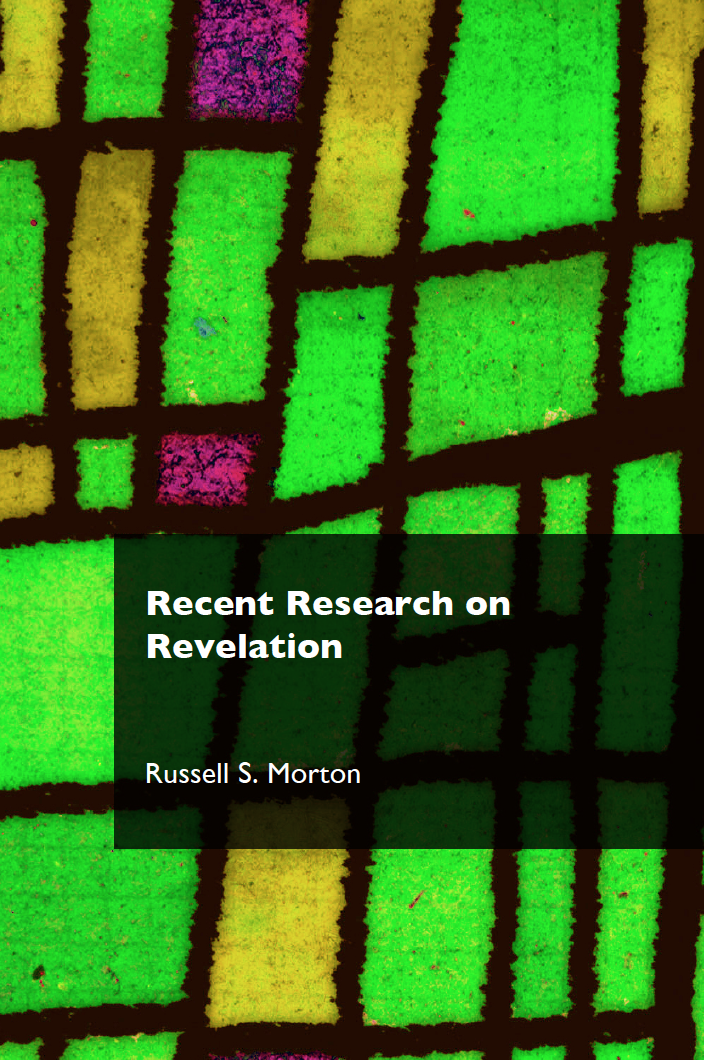

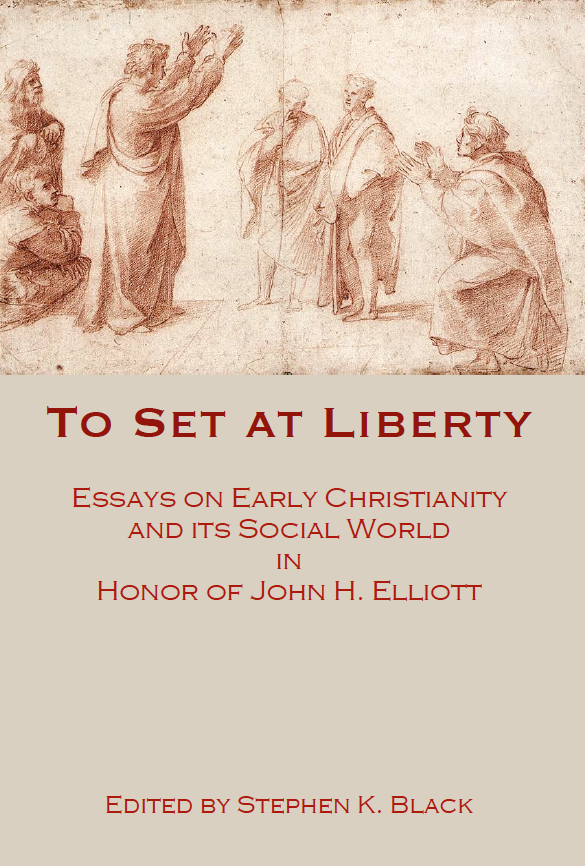
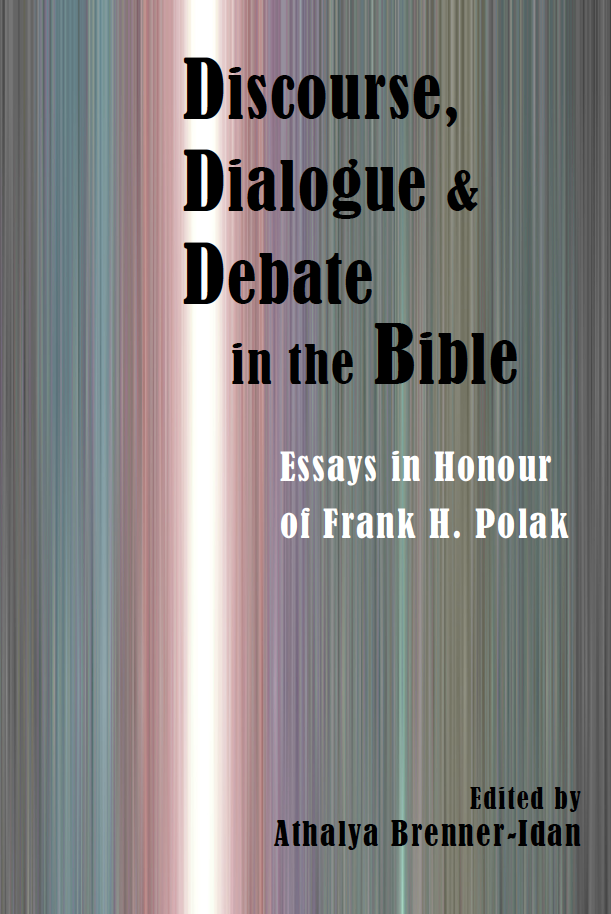

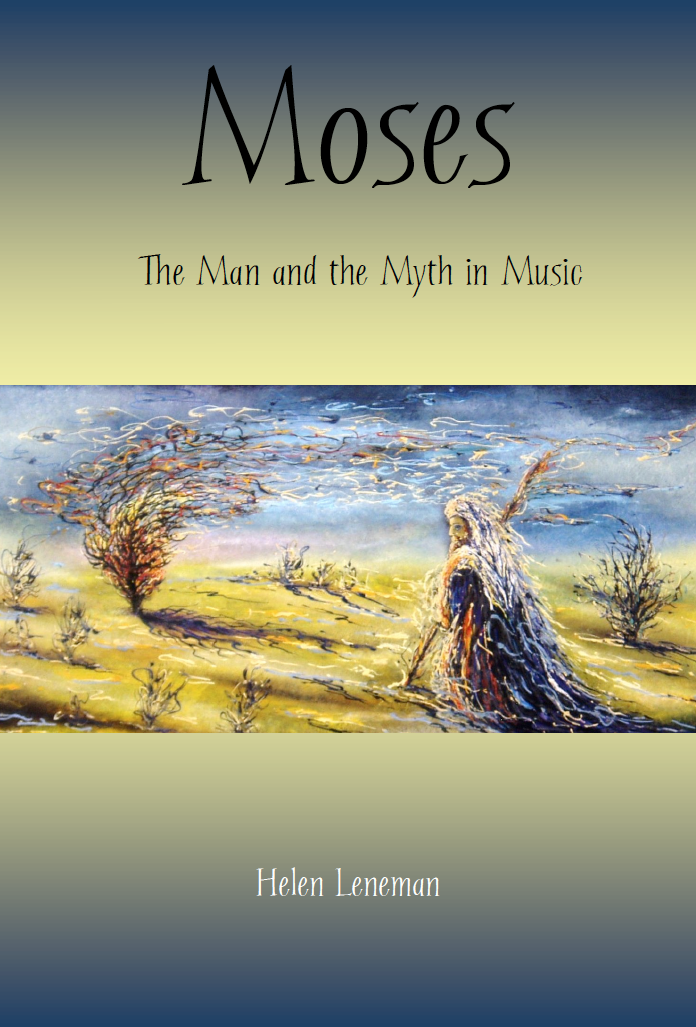


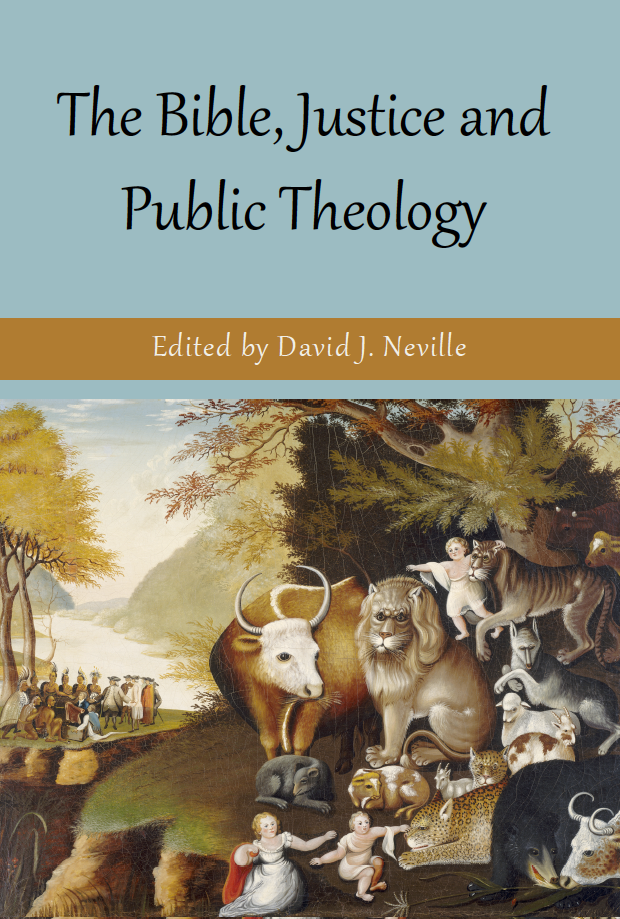
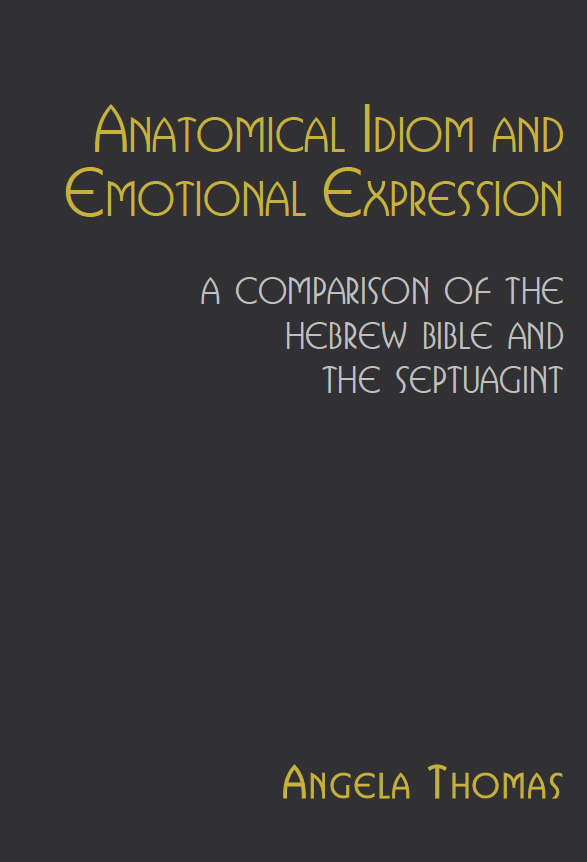
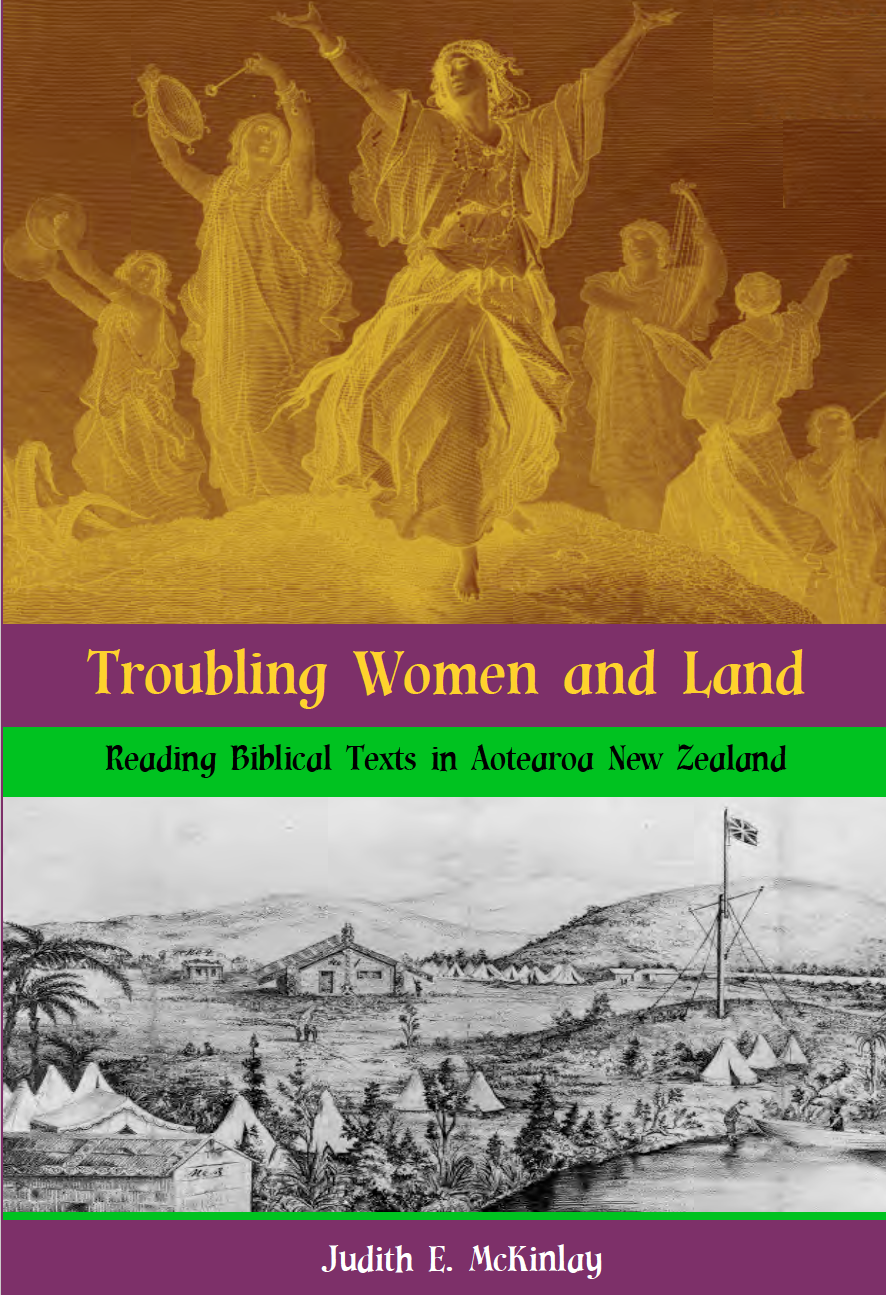
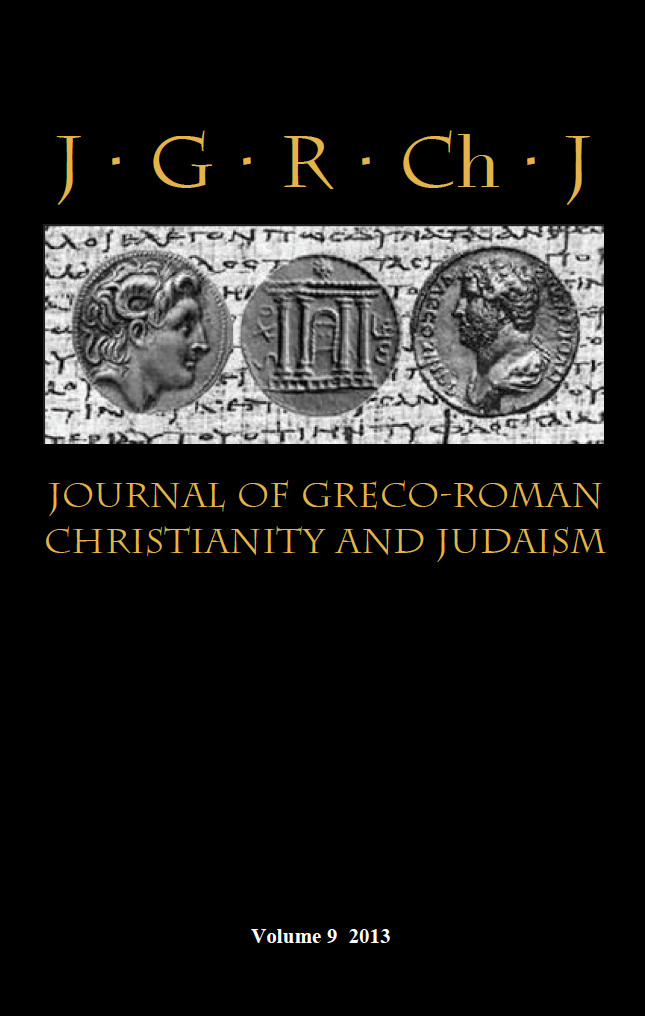
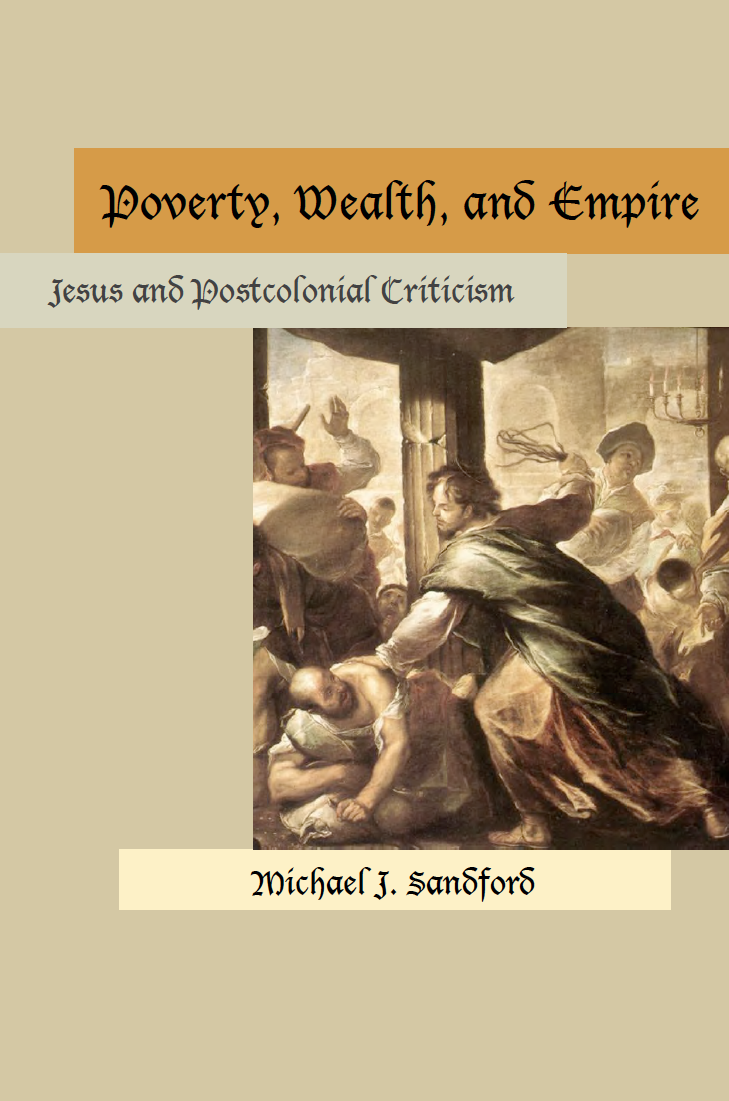
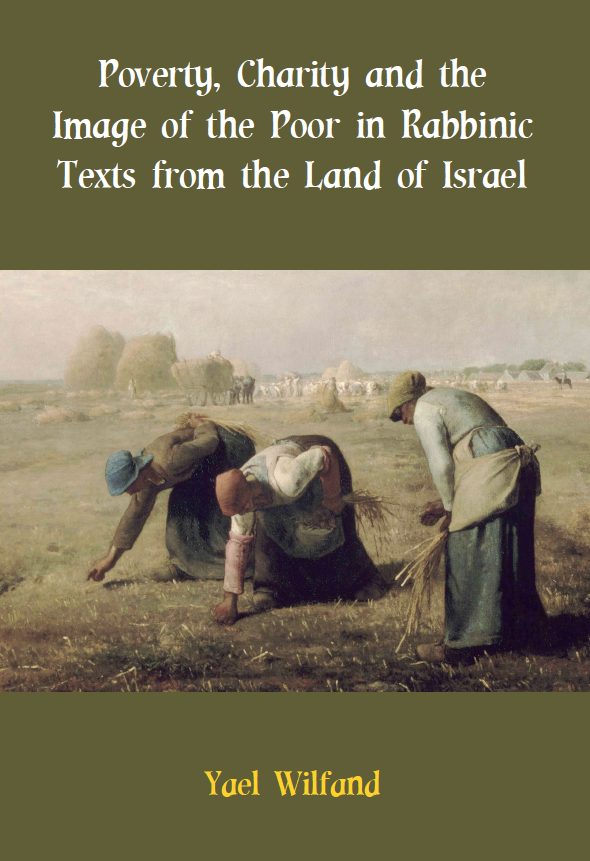
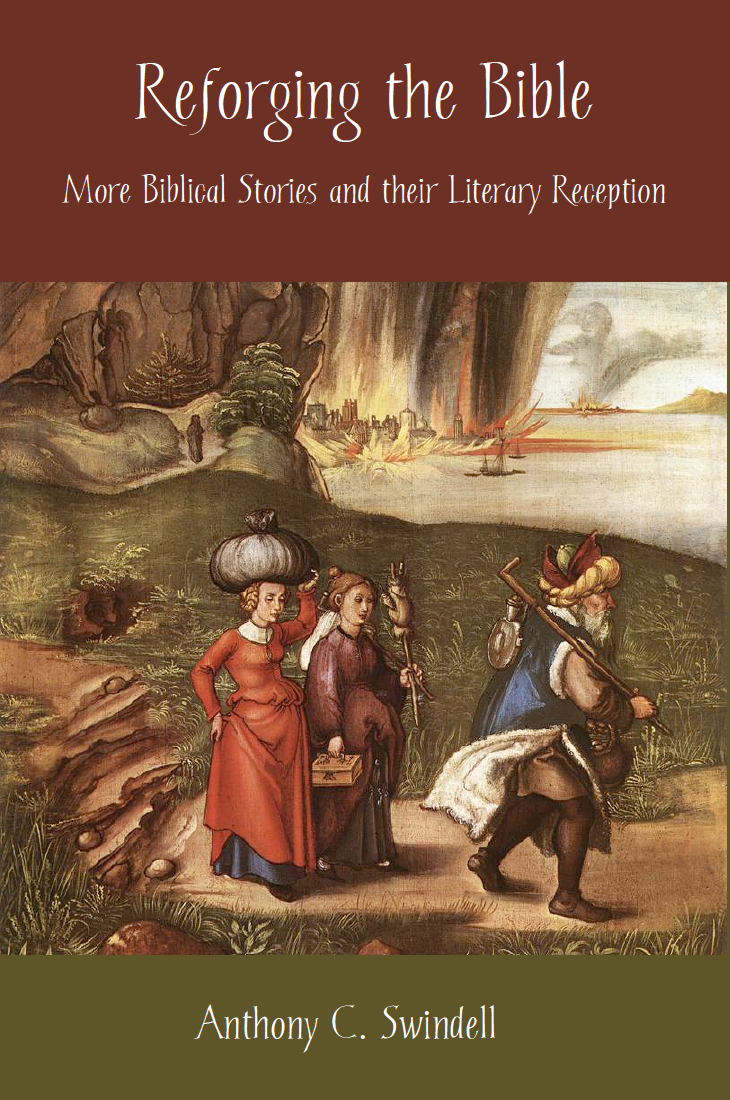
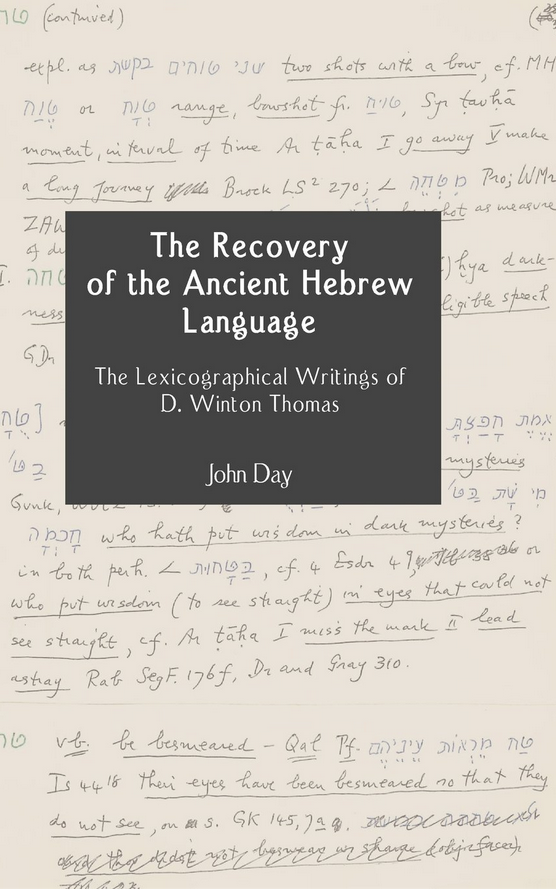
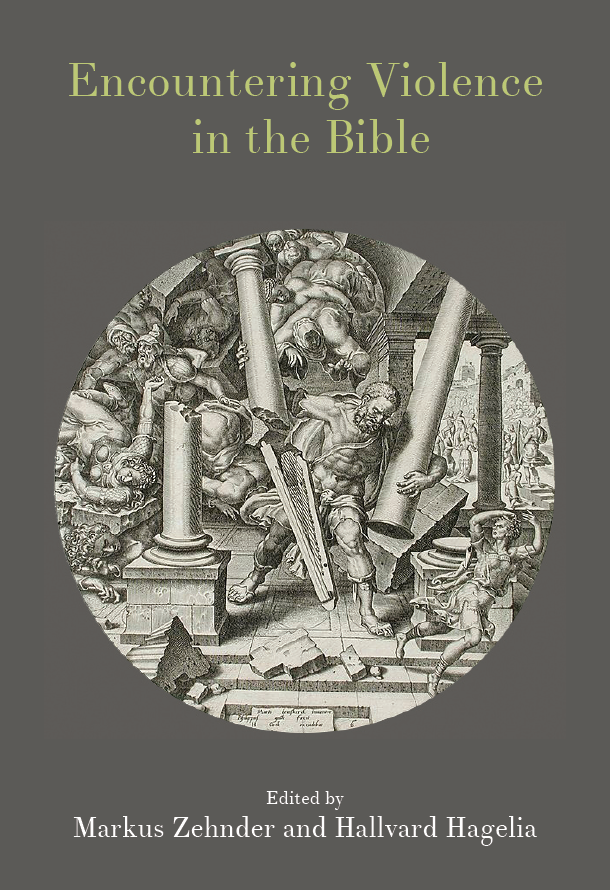
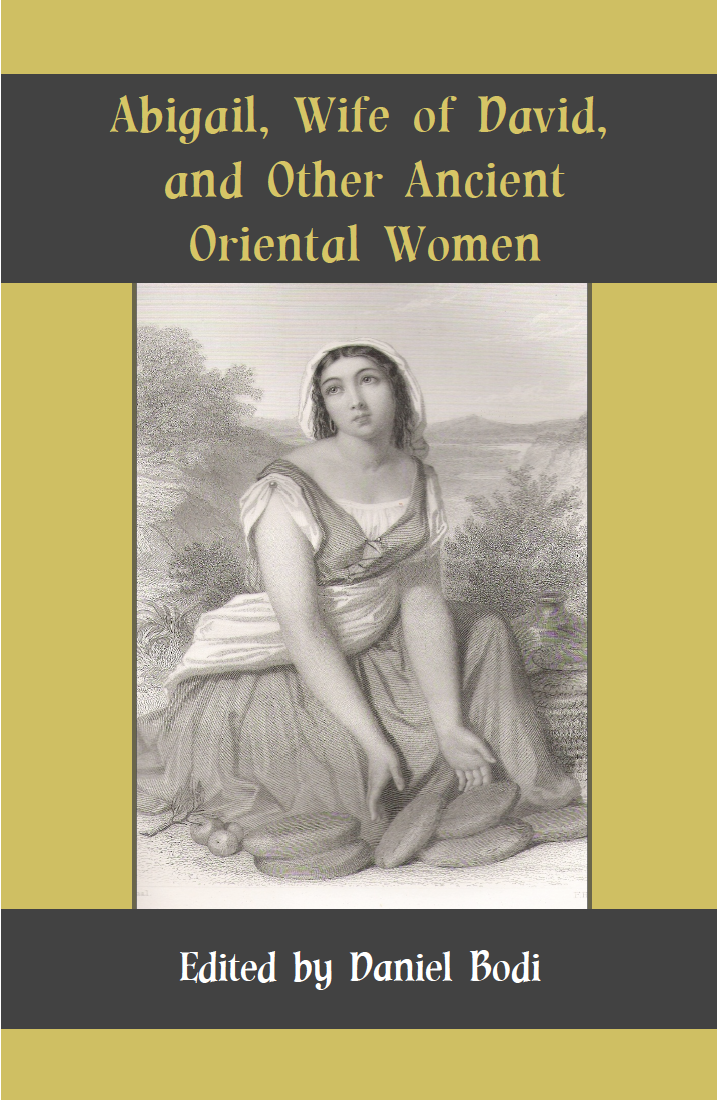

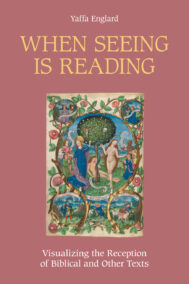
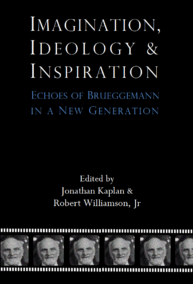
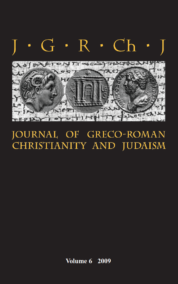
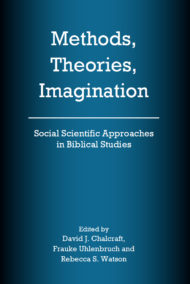

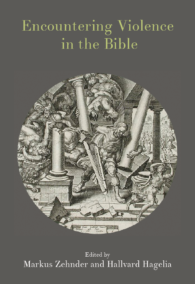
Finding Wisdom in Nature: An Eco-Wisdom Reading of the Book of Job
£40.00Original price was: £40.00.£18.50Current price is: £18.50.Finding Wisdom in Nature: An Eco-Wisdom Reading of the Book of Job
£40.00Original price was: £40.00.£18.50Current price is: £18.50.